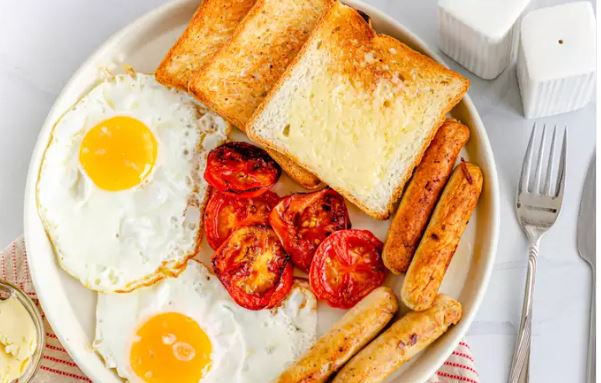Lifestyle
The best breakfast to eat if you are trying to lose weight

Buttery toasts with a glass of mixed fruit juice may sound like a delicious breakfast option.
But we all are aware of the fact that when it comes to losing weight, having these high sugar and high carb foods for breakfast won’t help.
So, what is the ideal breakfast to lose weight? If you are also wondering, here is the answer.
The best breakfast option
The breakfast that aims at making you shed extra kilos must contain a complex carb, a healthy fat, fibre and protein. Yes, a healthy breakfast should be a combination of all these important nutrients. Having these important nutrients on your breakfast plate every day will surely help you get the scale moving.
Why is eating breakfast important?
Despite whatever someone tells you, make sure never to skip breakfast and especially when you are trying to lose weight. When you try to save the calories by not eating breakfast, the opposite happens. Skipping breakfast in most cases leads to overeating later in the day and snacking on less nutritious items.
Weight watchers must try different combinations to include complex carbs, healthy fats, protein and fibre in their daily breakfast. Eating a hearty healthy breakfast keeps you fuller for longer and prevents mindless snacking.
Studies have found that people who eat a bigger breakfast tend to lose more weight than people who eat a smaller breakfast. Having a bigger breakfast also keeps you energised and helps you work out better.
Findings important nutrients in your breakfast
1. Complex carbs
Complex carbs are the carbs that have not been stripped off their natural fibre and starch. These types of carbs have longer chains of sugar molecules, which take longer to digest, make you feel energetic and keep you fuller for longer. Some common examples of complex carbohydrates include potatoes, corn, beans, chickpea and lentils.
2. Healthy fats
You might have heard a lot of bad things about fats but having fat as a part of your diet is actually good. Add unsaturated fats to your meals, which can help decrease your bad cholesterol and increase your good cholesterol. Unsaturated fats just like complex carbs take longer to digest and thus keep you fuller for longer. Some examples of good fats include avocado, nut butter, nuts, seeds and some oils.
3. Protein
Protein is one of the easiest nutrients to add in your breakfast. Eggs, greek yoghurt, bacon, cottage cheese and nut butter are some of the common sources of protein.
4. Fibre
If you are including all the above three-element in your breakfast plate, you will already have some kind of fibre element in it. But for that extra boost of fibre, you can add some fruits, sauteed vegetables, berries in your breakfast.






